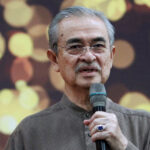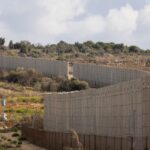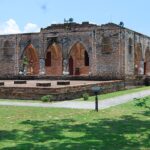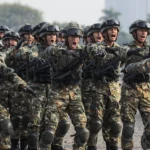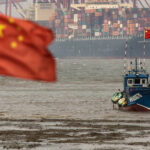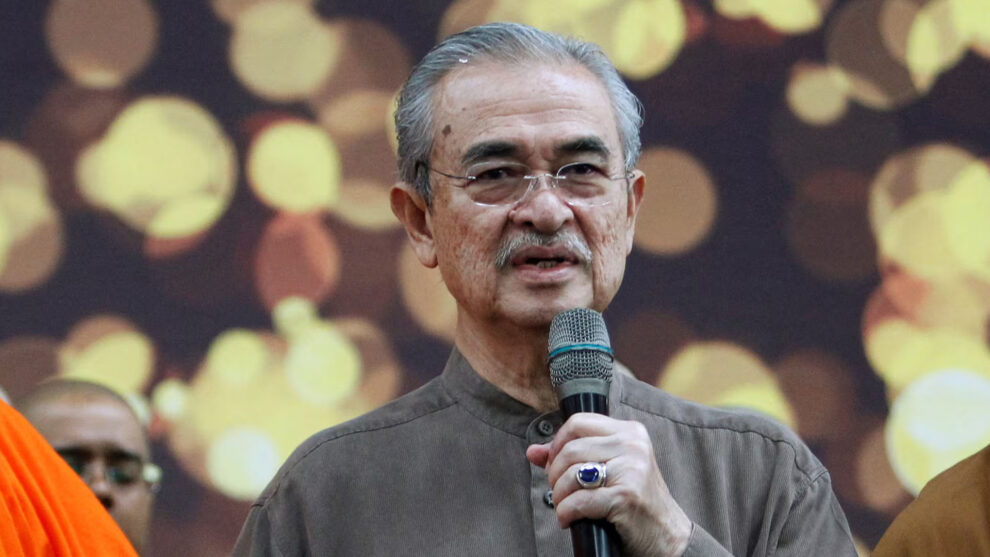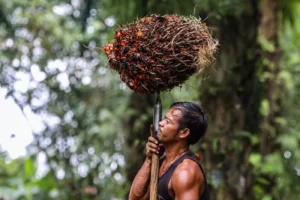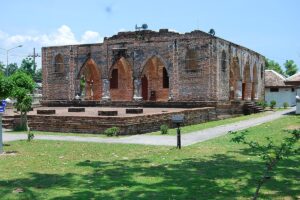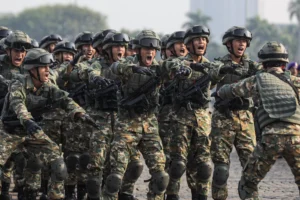Former Malaysian Prime Minister Abdullah Ahmad Badawi (85) passed away on Monday evening (14/4/2025). The politician, widely known as Pak Lah, had been receiving treatment at the National Heart Institute Hospital in Kuala Lumpur, Malaysia. Badawi’s son-in-law, Khairy Jamaluddin, conveyed the sad news, apologized, and requested prayers and support for Badawi.
Badawi was rushed to the hospital on Sunday morning due to shortness of breath. In 2022, Khairy Jamaluddin, who is also a former Malaysian Minister of Health, revealed that Badawi was suffering from dementia and experiencing difficulty speaking as well as recognizing close family members.
Malaysian Prime Minister Anwar Ibrahim, on the CNA News website Monday evening, praised Badawi as a figure who deeply values humanity. “Pak Lah taught us how to humanize others. He was not only a leader but also a person of great character,” said PM Anwar on his Facebook page.
Anwar reminisced about Pak Lah, who always appeared calm amidst political turmoil and was always open, even to the opposition, as Anwar experienced during that time. “That is the true essence of a Statesman,” Anwar wrote in his recollection.
Astro Awani’s website on Monday afternoon wrote that Badawi assumed the helm of Malaysia’s government after a landslide victory in the 2004 Malaysian General Election. He secured 198 out of 220 seats in the Malaysian Parliament. Badawi introduced the concept of Islam Hadari, which is moderate and inclusive, in fostering nationalism.
During his administration (2003–2009), Badawi left an important legacy, namely the establishment of the Malaysian Anti-Corruption Commission (MACC), known as Suruhanjaya Pencegahan Rasuah Malaysia (SPRM), and the Special Task Force to Facilitate Business (PEMUDAH) to address corruption in the government and private sectors.
The establishment of this institution is a major step for Malaysia to eradicate corruption.
In the economic sector, Badawi built five economic corridors, namely Iskandar Malaysia near the Singapore border, the Northern Economic Region, the East Coast Economic Region, the Sabah Development Corridor, and the Sarawak Renewable Energy Corridor (SCORE). These economic corridors stimulate more equitable development of the country and narrow the gap between urban and rural development and inclusive economic growth.
No less important, Badawi also built the Malaysian Halal industry ecosystem. Malaysia is also involved in setting the standardization of halal food products in China. Badawi also initiated mental or human resource development with the Human Capital Development program.
In the field of political reform, Badawi is known for his open and consultative leadership style. Badawi encourages the involvement of various parties in the policy-making process and establishes the basis for development such as Wawasan 2020.
Abdullah Ahmad Badawi was the son of Haji Ahmad Badawi Sheikh Abdullah Fahim (1907–1977) who had Hadrami ancestors from Hadramawt, Yemen and was married to Hajjah Datuk Kailan Hassan Kwantung (1924-2004), daughter of Haji Hassan Saleh alias Hah Su Chiang who had ancestors from Hainan Island, China.
Badawi is known to have visited his ancestral village on Hainan Island. Hainan has several Muslim villages that are part of the island’s identity.
On the Malaysiakini.com page (12/10/2017), P Gunasegaram talked about the diversity of origins of Malaysian leaders. He explained that former PM Najib Razak admitted to having Bugis warrior ancestors. Malaysia’s first PM, Tunku Abdul Rahman, had one of his ancestors from Siam (Thailand), the third PM Hussein Onn had Turkish blood, the fourth PM, Doctor Mahathir Mohammad had Indian blood, and the fifth PM, Abdullah Badawi had Chinese ancestors.
Malaysian Chinese Association (MCA) President Dr Wee Ka Siong said he was deeply saddened by Badawi’s passing.
“He is a true Malaysian statesman. Tun Badawi is generous and humble. When leading Malaysia he always acted moderately and inclusively in advancing the entire community,” said Wee.
Badawi was pressured to resign after the Barisan Nasional faction that supported him experienced a decline in votes in the 2008 Malaysian Election, winning 140 seats and the opposition winning 82 parliamentary seats.
During Pak Lah’s leadership, various state-owned and private Malaysian companies under Khazanah Berhad developed various businesses in Indonesia from the palm oil plantation sector in Sumatra and Kalimantan, to the oil and gas business of Petronas, Proton, and Air Asia airlines growing rapidly.

